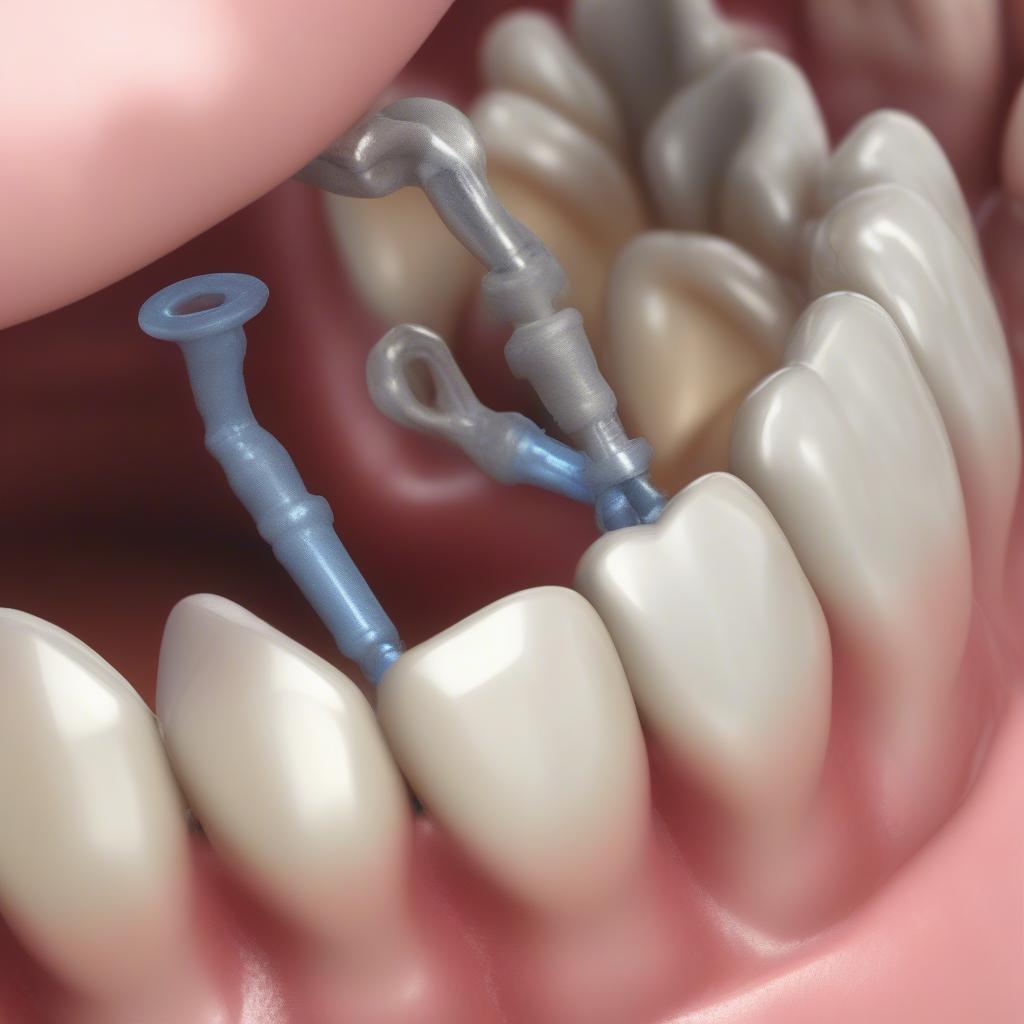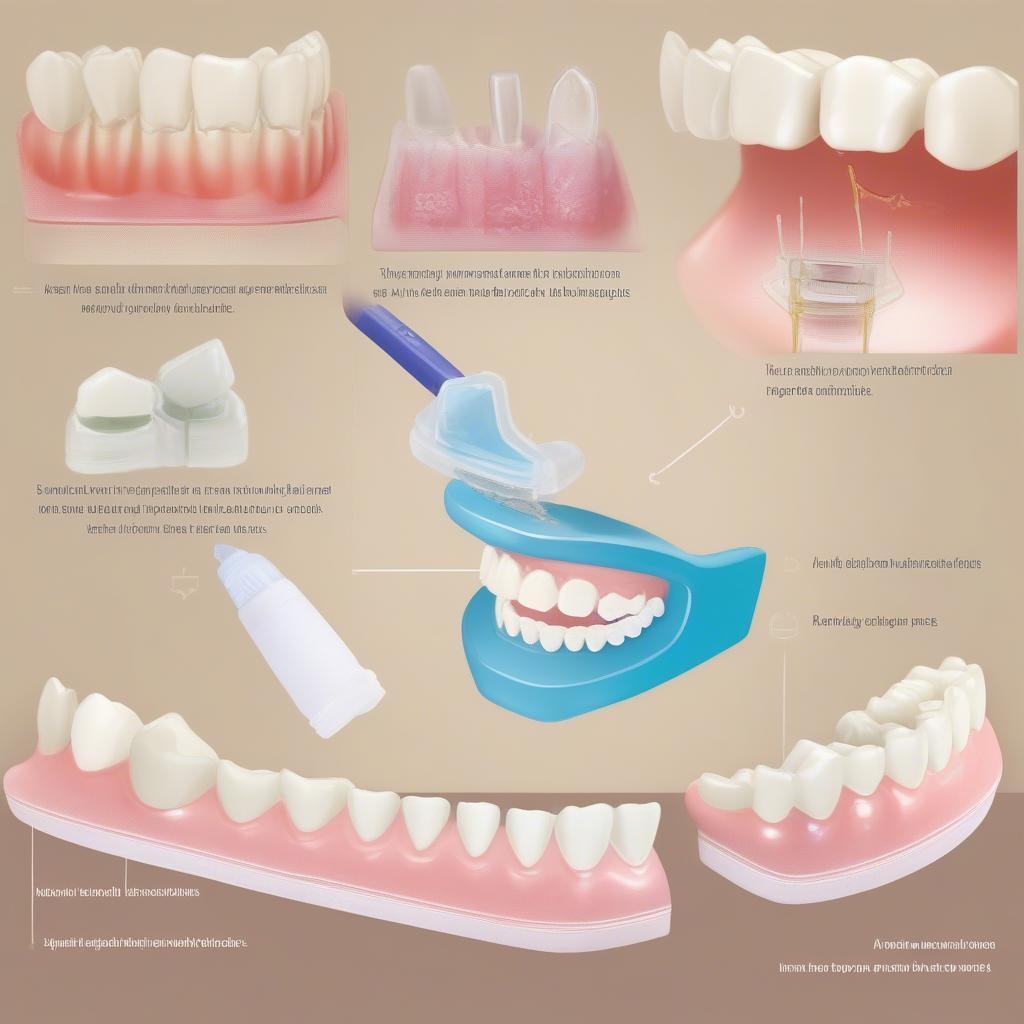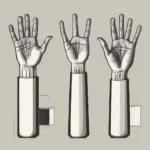
Permanent Retainer Cutting Tongue: Causes, Solutions, and Prevention
- AmazoniaSilva
- Tháng 12 14, 2024
- Zodiac signs
- 0 Comments
Permanent retainers, while effective in maintaining straight teeth, can sometimes cause irritation, including cutting the tongue. This can be a painful and frustrating experience. This article will explore the causes of tongue cutting from permanent retainers, offer solutions to alleviate the discomfort, and discuss preventative measures.
Understanding the Issue: Why Does My Permanent Retainer Cut My Tongue?
Permanent retainers are bonded to the back of your teeth to keep them from shifting back to their original position after orthodontic treatment. They are typically made of thin wire, which, if not placed or maintained properly, can protrude and irritate the tongue. Several factors can contribute to a permanent retainer cutting your tongue:
- Improper Placement: If the retainer wire isn’t placed smoothly against the teeth, it can create sharp edges that rub against the tongue.
- Broken or Loose Retainer: A broken or loose retainer wire can become dislodged and poke into the tongue.
- Changes in Mouth Structure: Over time, your teeth and mouth can shift slightly, causing the retainer to become misaligned and irritate the tongue.
- Tongue Thrusting: This habit, where the tongue pushes against the teeth, can exacerbate irritation caused by the retainer.
- Build-up of Calculus: Calculus buildup around the retainer can create rough surfaces that rub against the tongue.
 Permanent Retainer Cutting Tongue: Common Causes
Permanent Retainer Cutting Tongue: Common Causes
Finding Relief: What to Do if Your Retainer is Cutting Your Tongue
If your permanent retainer is cutting your tongue, it’s important to address the issue promptly to prevent further irritation and potential infection. Here are some steps you can take:
- Rinse with Salt Water: Rinsing your mouth with warm salt water can help soothe the irritated tissue and promote healing.
- Apply Dental Wax: Dental wax can be applied to the sharp edges of the retainer to create a smooth barrier between the wire and your tongue.
- Over-the-Counter Pain Relief: Pain relievers like ibuprofen or acetaminophen can help manage discomfort.
- Contact Your Orthodontist: It’s crucial to schedule an appointment with your orthodontist as soon as possible. They can assess the retainer and make any necessary adjustments or repairs.
Preventing Future Problems: Maintaining Your Permanent Retainer and Protecting Your Tongue
Proper care and maintenance of your permanent retainer can significantly reduce the risk of tongue irritation. Here are some preventative measures:
- Regular Dental Check-ups: Regular visits to your orthodontist and dentist are essential for monitoring the retainer and ensuring it remains in good condition.
- Proper Oral Hygiene: Brushing and flossing regularly, especially around the retainer, helps prevent calculus buildup and maintains oral health.
- Avoid Hard or Sticky Foods: These foods can damage or dislodge the retainer, increasing the risk of tongue irritation.
- Be Mindful of Tongue Placement: If you have a habit of tongue thrusting, try to be more aware of your tongue’s position and avoid pushing it against the retainer.
 Solutions and Prevention for Permanent Retainer Tongue Irritation
Solutions and Prevention for Permanent Retainer Tongue Irritation
Addressing Tongue Irritation: Long-Term Solutions and Considerations
While immediate relief measures can address the discomfort, long-term solutions might be necessary depending on the cause of the issue. Your orthodontist might recommend:
- Re-adjusting the Retainer: If the retainer wire is slightly out of place, a simple adjustment might be sufficient to resolve the problem.
- Replacing the Retainer: If the retainer is broken or severely damaged, replacement might be the best option.
- Considering Alternative Retainer Options: In some cases, a different type of retainer, such as a removable retainer, might be more suitable.
 Long-Term Solutions for Permanent Retainer Issues
Long-Term Solutions for Permanent Retainer Issues
Conclusion: Managing a Permanent Retainer Cutting Your Tongue
A permanent retainer cutting your tongue can be a bothersome issue, but with proper care and timely intervention, the problem can be effectively managed. Understanding the causes, implementing solutions, and practicing preventative measures can ensure the longevity of your orthodontic treatment and maintain your oral health and comfort. If you are experiencing any discomfort with your permanent retainer, don’t hesitate to contact your orthodontist for professional advice and treatment.
FAQ
- How long does it take for a cut from a retainer to heal?
- Can I use orthodontic wax on a permanent retainer?
- What should I do if my retainer breaks?
- Is tongue thrusting a common cause of retainer irritation?
- How often should I see my orthodontist after getting a permanent retainer?
- Are there any home remedies for a sore tongue from a retainer?
- Can a permanent retainer be removed if it continues to cause problems?
Common Scenarios
- Sharp Pain After Eating: Food particles can get trapped under the retainer wire, exacerbating existing irritation.
- Waking Up with a Sore Tongue: Tongue thrusting during sleep can worsen irritation.
- Difficulty Speaking or Swallowing: Severe irritation can impact speech and swallowing.
Further Reading
For more information on retainer care and oral health, explore other articles on our website, such as “Maintaining Your Perfect Smile: A Guide to Retainer Care” and “Common Orthodontic Problems and Solutions”.
Need assistance? Contact us at [email protected] or visit us at Fifth Avenue, 34th Floor, New York, NY 10118, USA. We have a 24/7 customer support team.


